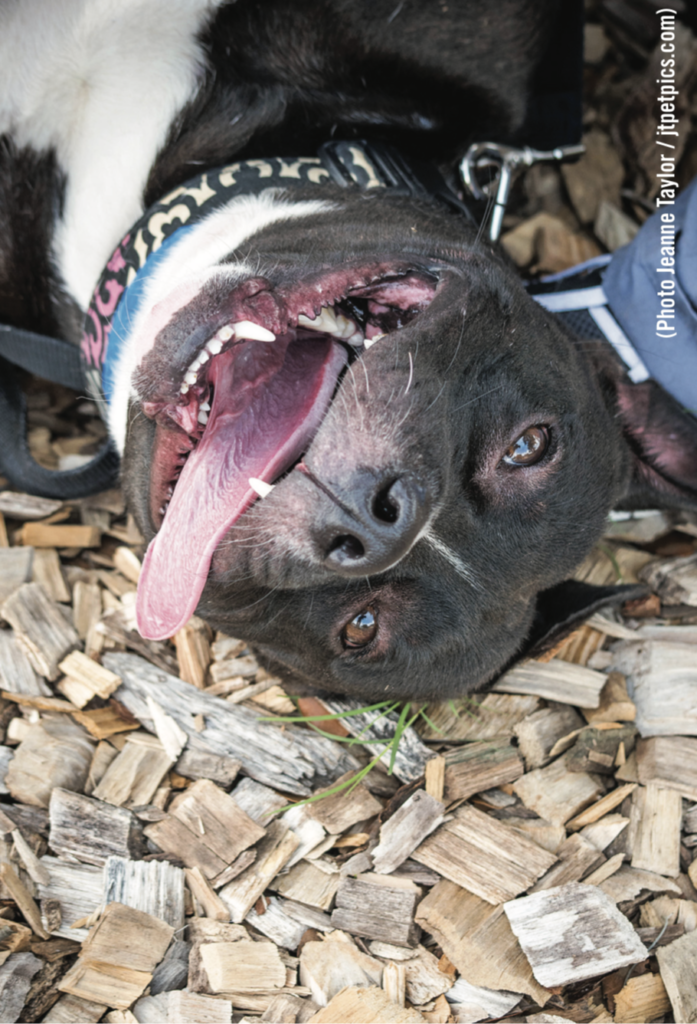The South Carolina Animal Legislation Coalition (SCALC) is gearing up to take new legislation to the Statehouse in 2020 that would focus on saving the Pit bull. 30% – 40% of dogs that enter shelters in South Carolina are Pit bulls, but a whopping 70% of dogs euthanized are Pitties.
SCALC believes the answer to saving the Pit bull lies in legislation that would emphasize the spay-neuter of these animals by making it mandatory unless the owner wants to pay an annual registration fee ($500) to keep their Pit bull unaltered.
Carolina Tails spoke with SCALC President Denise Wilkinson about what lies ahead in 2020.
Carolina Tails: Tell us about 2020. What’s ahead for this
legislation that involves Pit bulls?
Denise W.: The main thing that came up from all of our discussions
is we need to focus more on spaying and neutering the Pit bulls
across the state of South Carolina. We have introduced legislation
on the state level, and it’s not mandatory that people have to spay
and neuter their Pit bull, but we do encourage them through this
legislation through a registration fee. If you don’t want to spay or
neuter your Pit bull, we believe you should pay a $500 annual fee
to own an unaltered Pit bull. Then those funds will be used to help
those individuals that own a Pit bull that want to alter them.
You’re investing in helping us solve the problem in South Carolina.
Right now, taxpayers are assuming that responsibility. As a taxpayer,
I know I don’t want my funds being used to bring all these Pit
bulls into municipal shelters across South Carolina only to be
euthanized.
Carolina Tails: Paint the picture for people who don’t understand what it’s like in the shelters when it comes to Pit bulls.
Denise W.: Well, 30 to 40% of all the dogs coming into municipal shelters are Pit bulls, but 70% of all the dogs being euthanized in the shelter are pit bulls. 70%! When you walk down adoption row, currently at Pawmetto Lifeline, you are going to see Pit bull, after Pit bull, after Pit bull. They sit there for months and months. A lot of people are leery of them because many of them are adult dogs. They don’t know their history. They have a very bad reputation because the wrong people have owned this breed — using them for fighting. People are leery of putting this dog with children and other pets. We’re trying to educate the community about what a wonderful breed this is when it’s with the right people, when they’re trained, and when they’re socialized. You go in any shelter in South Carolina and you’re going to see an overwhelming number of Pit bulls sitting in those shelters just waiting to be adopted or they’re waiting to be euthanized.

Carolina Tails: What kind of reaction are you prepared for from people who own Pit bulls and other people who, say, are concerned about what they consider to be breed specific legislation?
Denise W.: Well, I think that the people that are educated and understand the issues we’re dealing with in our shelter are extremely supportive. Most all of the private conversations that I have had with political leaders and community leaders, they think, “Wow, this is a very, very smart way to address the problem that we’re having.” You’re putting the onus on those that own this breed that don’t want to alter them. You’re generating funds through the $500 registration fee to help spay and neuter these pit bulls in many communities that are struggling with funding. We are getting a lot of support.
Carolina Tails: When it comes, though, to deciding which dog is considered a Pit bull, that’s also part of the discussion and part of, I think, what you’ll be educating people on, but who makes that decision?
Denise W.: What we did in the legislation, is we have very specific characteristics to identify a Pit bull. They can also get a letter from a South Carolina licensed veterinarian that states, “This is not a Pit bull,” or they can pay to get a DNA test done. There are three ways to either identify the dog as a Pit bull or to confirm that it is not a Pit bull.
Carolina Tails: Okay. What are the next steps? What should
people anticipate as 2020 moves forward with this?
Denise W.: Well, we’re hoping that we’re going to have a committee
meeting in January with the Department of Ag. We’re just excited
about the possibility of having the opportunity to address concerns
and really educate people in South Carolina. People go, “What’s
next? The Golden Retriever? What’s next? The Poodle?” No, that’s
not next because we can adopt those dogs out. We cannot adopt
all of these Pit bulls and unfortunately most of them are dying in
the shelters. Truly, this is all about protecting the breed by limiting
the population so they too can be adopted instead of overwhelming
our shelters. That’s the primary reason we’re doing this.
Carolina Tails: Finally, if I have a pit bull and my pit bull was
spayed or neutered, this law has absolutely no effect on me at
all?
Denise W.: Correct, if you have an altered pit bull, it does not
apply to you. It only applies to those individuals that own an
unaltered pit bull and you have the right to choose. You can either
alter it and there is no registration fee, or you can choose not to
alter it and then you pay that annual $500 registration fee.





